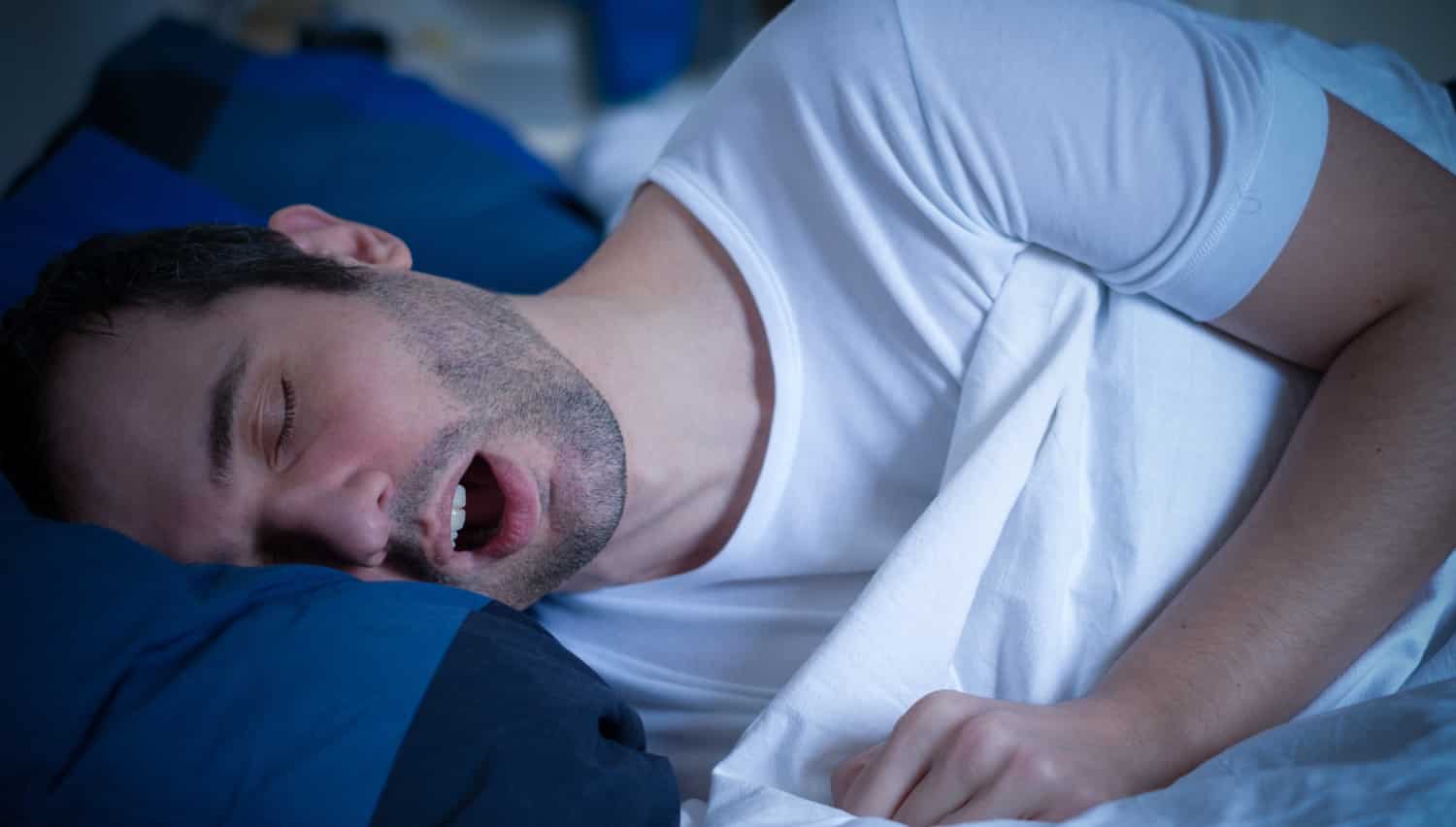Nearly 70 million Americans suffer from chronic sleep-related problems each year. That statistic just scratches the surface, however, because many sleep disorders go undiagnosed. After all, the main symptoms cannot be perceived by a person while they are asleep. Sleep apnea and bruxism are among the disorders that can be hard to identify, and the two are often linked.
What is Sleep Apnea?
Sleep apnea is one of the three most common sleep disorders, affecting over one billion individuals. It interrupts a person’s breathing pattern while they sleep, causing them to repeatedly stop and start breathing throughout the night.
There are two types of sleep apnea: obstructive and central. Obstructive sleep apnea (OSA) is the more common type of sleep apnea. It occurs when the muscles of your throat relax during sleep, blocking the airway and causing the body to stop breathing for up to 10 seconds at a time.
Symptoms
Sleep apnea can cause an individual to feel fatigued throughout the day and underperform at work or during other daily activities.
Other symptoms of sleep apnea include:
- Snoring
- Waking up feeling exhausted
- Dry mouth
- Difficulty concentrating throughout the day
- High blood pressure
What is Bruxism?
Bruxism is a disorder where individuals unconsciously grind, clench, or brace their teeth. This is caused by repetitive jaw-muscle activity.
There are two main types of bruxism: sleep-related and awake. Sleep-related bruxism is categorized by rhythmic movements (grinding), sustained contractions (clenching), or a combination of both while a person is asleep.
Symptoms
Dentists can identify evidence of bruxism during an exam, which is indicated by a misalignment of the jaw or teeth, eroded surfaces, and loose teeth.
A few of the other symptoms of sleep bruxism are:
- Tooth pain and increased sensitivity
- Chipped or fractured teeth
- Worn enamel
- Jaw, facial, and neck pain
- Chronic headaches
Sleep Apnea and Bruxism
Sleep apnea and bruxism are often linked and it is not uncommon for an individual to suffer from both simultaneously. Nearly one in four individuals with sleep apnea also grind their teeth at night, according to the National Sleep Foundation. While it is still unclear why the two conditions can be related, there are a few theories.
One prominent theory suggests that sleep apnea can trigger bruxism. When the airway is blocked, the muscles in the mouth and jaw work to reopen it, causing the teeth to grind. Another theory is that bruxism helps relieve the dry tissues of the mouth and back of the throat, which is a side effect of sleep apnea. It is also possible that the stress and anxiety that interrupted sleep causes makes the jaw unconsciously clench or grind.
Risks of Untreated Sleep Apnea and Bruxism
In addition to all of the symptoms, if left untreated, sleep apnea can lead to serious health issues. Individuals may develop type 2 diabetes, acid reflux, and suffer memory loss. Continued bruxism is also harmful to your health. It can break and loosen teeth, as well as wear down enamel, crowns, and fillings over time.
Sleep Apnea Treatment in Tucson
If you notice any of the symptoms of sleep apnea or bruxism in yourself or a loved one, Smith Dentalworks is here to help.


